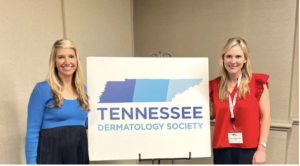UTHSC’s Hamilton Eye Institute is seeking patients for studies and clinical trials. There are three listed below along with contact information for interested physicians and patients.
ZEDS Study
The UTHSC Hamilton Eye Institute at is currently participating in ZEDS study to determine if PO antiviral will decrease recurrent eye disease after shingles in V1 and/or V2 of the face.
Key Info on ZEDS Clinical Trial:
- to determine if oral antiviral suppresses recurrence of eye involvement
- eligible patients
- history of shingles on the face in either V1 and/or V2 dermatomes at any time
- HZO eye involvement now or within the past year
- free screening (no insurance required)
- protocol/study visit every 3 months (no charge)
- patients compensated for time and effort
- patients seen on arrival and met at door by our coordinator to ensure timely visits
- all patients will be referred back to you for ongoing care.
Onset eye issues associated with the drug Dupixent
The Hamilton Eye Institute at UTHSC is currently participating in an observational study trying to understand new onset eye issues(e.g. conjunctivitis) associated with the drug Dupixent. Dr. Penny Asbell is the Principal Investigator of this study, and we hope you will consider referring patients.
Key Points for this study:
- Patients currently on Dupixent for at least 8 weeks
- 2 Groups Eligible
- With new onset eye problems
- Without eye problems
- 2 Groups Eligible
- Enrolled patients will be compensated for their time and effort
- Insurance not needed to participate
- All patients will be referred back to you for ongoing care
Clinical Trial for biologic drug to treat Dry Eye Disease in Subjects with Sjögren’s Syndrome
The Hamilton Eye Institute at UTHSC is currently participating in a Phase III clinical trial for a novel biologic drug to treat Dry Eye Disease in Subjects with Sjögren’s Syndrome. Dr. Penny Asbell is the Principal Investigator of this study and hopes you will consider referring patients.
Key Points for this Dry eye study:
- Diagnosed with primary or secondary Sjögren’s syndrome
- Seropostive for anti-Ro/SSA OR anti-La/SSB antibodies
OR - Positive salivary gland biopsy
- Seropostive for anti-Ro/SSA OR anti-La/SSB antibodies
- Dry Eyes: Use artificial tears, or dry eye medications
- Enrolled patients will be compensated for their time and effort
- Insurance not needed to participate
- All patients will be referred back to you for ongoing care
Please contact us for more information and/or to refer a patient; patients can also call us directly.
Contact information:
- Penny Asbell, MD, FACS, MBA, email: pasbell@uthsc.edu
- Lin Yang, Study Coordinator, email: lyang50@uthsc.edu
- Andrew Fernandez, Study Coordinator, email: aferna22@uthsc.edu







